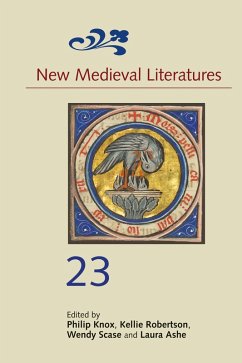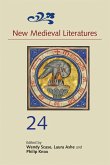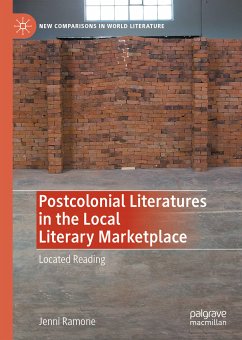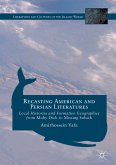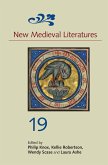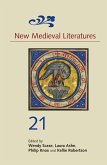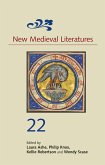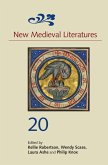Annual volume on medieval textual cultures, engaging with intellectual and cultural pluralism in the Middle Ages, showcasing the best new work in this field.
New Medieval Literatures is an annual of work on medieval textual cultures, aiming to engage with intellectual and cultural pluralism in the Middle Ages and now. Its scope is inclusive of work across the theoretical, archival, philological, and historicist methodologies associated with medieval literary studies, and embraces the range of European cultures, capaciously defined.
Essays in this volume engage with widely varied themes: law and literature; manuscript production, patronage, and aesthetics; real and imagined geographies; gender and its connections to narrative theory and to psychoanalysis. Investigations range from the eleventh to the fifteenth centuries, from England to the eastern Mediterranean. New arguments are put forward about the dating, context, and occasion of Geoffrey Chaucer's Boece, while the narrative dynamics of Chaucer's "Franklin's Tale" and "Tale of Melibee" are examined from new perspectives. The topography of the Holy Lands appears both as a set of emotional sites, depicted in the Prick of Conscience in its account of the end of the world, and as co-ordinates in the cultural imaginary of medieval the wine-trade. Grendel's mother emerges as the invisible and unavowable centre of male heroic culture in Beowulf, and the fourteenth-century St Erkenwald is brought into contact with the community-building project of the medieval death investigation. Finally, the late medieval Speculum Christiani is revealed to be a work with deep aesthetic investments when read through the framework of how its medieval scribes encountered and shaped that work.
New Medieval Literatures is an annual of work on medieval textual cultures, aiming to engage with intellectual and cultural pluralism in the Middle Ages and now. Its scope is inclusive of work across the theoretical, archival, philological, and historicist methodologies associated with medieval literary studies, and embraces the range of European cultures, capaciously defined.
Essays in this volume engage with widely varied themes: law and literature; manuscript production, patronage, and aesthetics; real and imagined geographies; gender and its connections to narrative theory and to psychoanalysis. Investigations range from the eleventh to the fifteenth centuries, from England to the eastern Mediterranean. New arguments are put forward about the dating, context, and occasion of Geoffrey Chaucer's Boece, while the narrative dynamics of Chaucer's "Franklin's Tale" and "Tale of Melibee" are examined from new perspectives. The topography of the Holy Lands appears both as a set of emotional sites, depicted in the Prick of Conscience in its account of the end of the world, and as co-ordinates in the cultural imaginary of medieval the wine-trade. Grendel's mother emerges as the invisible and unavowable centre of male heroic culture in Beowulf, and the fourteenth-century St Erkenwald is brought into contact with the community-building project of the medieval death investigation. Finally, the late medieval Speculum Christiani is revealed to be a work with deep aesthetic investments when read through the framework of how its medieval scribes encountered and shaped that work.
Dieser Download kann aus rechtlichen Gründen nur mit Rechnungsadresse in A, D ausgeliefert werden.

